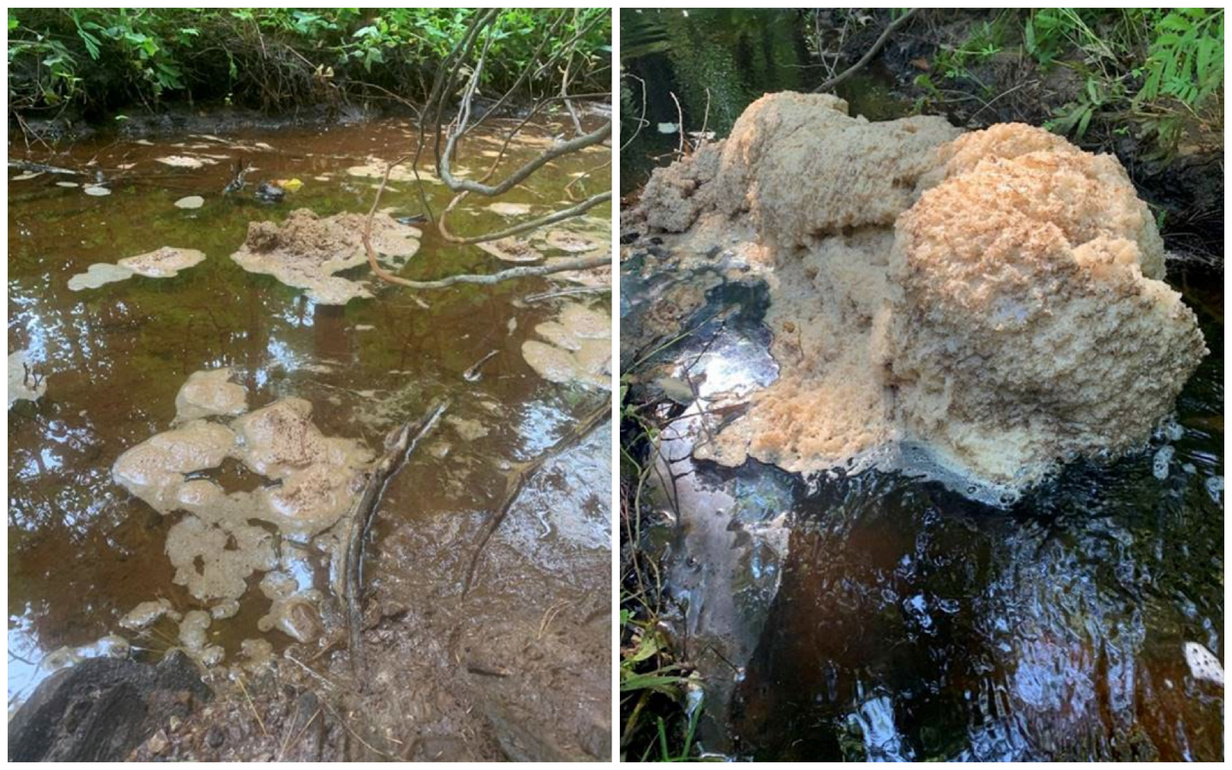
Watershed Center, GT Band, Elk-Skegemog Lakes Association Sue Burnette Foods Over Alleged Environmental Violations
By Beth Milligan | June 9, 2023
The Watershed Center Grand Traverse Bay, Grand Traverse Band of Ottawa and Chippewa Indians, Elk-Skegemog Lakes Association, and Grand Traverse BAYKEEPER have filed a lawsuit against Burnette Foods, alleging the Elk Rapids fruit processing company has been releasing pollutants for years that could be compromising the water quality of surrounding wetlands and groundwater, as well as Spencer Creek and Elk Lake.
The plaintiffs filed the suit Wednesday in the U.S. District Court for the Western District of Michigan seeking to enforce the Clean Water Act and Michigan Environmental Protection Act. Burnette Foods owns a fruit processing facility at 701 US-31 South in Elk Rapids. While some of the facility’s wastewater is discharged to the wastewater treatment plant in Elk Rapids, much of it is discharged through an on-site land treatment system. That system uses a combination of spray and drip irrigation to discharge the wastewater to spray fields.
According to the lawsuit, each of Burnette’s four spray fields are adjacent to and sloped down toward wetlands, which drain to Spencer Creek and then Elk Lake. “On numerous occasions over the past five years, particularly during the months of July, August, and September, unnatural qualities have been observed in Spencer Creek downstream of Burnette’s spray fields, including unnatural foam, strong odors, discoloration, and orange and red settleable solids along the creek bottom,” the lawsuit states.
The Michigan Department of Environment, Great Lakes, and Energy (EGLE) issued violation notices to Burnette Foods in August 2019, November 2020, and November 2021 “citing Burnette for hundreds of violations of the Clean Water Act and its groundwater permit,” the lawsuit states. Among those violations, EGLE cited Burnette for discharging wastewater effluent into surrounding wetlands. In addition, EGLE and the Elk-Skegemog Lakes Association collected water samples that found E. coli was present in both Burnette’s wastewater and in Spencer Creek.
The lawsuit notes that surface waters in Michigan are protected for “total body contact recreation from May 1 to October 31” and can’t exceed a maximum of 300 E. coli per 100 milliliters. Water samples from Spencer Creek showed E. coli levels regularly above this threshold, ranging from 345 E. coli per 100 milliliters to over 2,419 E. coli per 100 milliliters. Water samples also showed dissolved oxygen standards were below required creek levels. Arsenic levels in the wetlands also exceeded legal standards. EGLE found that overapplication of high-strength wastewater in the spray fields “has mobilized arsenic in the groundwater and has resulted in the flow of impacted groundwater to the wetlands,” the lawsuit states.
In a statement to The Ticker, Jennifer Boyer of Burnette Foods said that “consistent with company policy, Burnette Foods does not comment on pending litigation.” However, in written responses to EGLE violations in recent years, the company rejected the notion that E. coli could be coming from its facility, noting that “absolutely no sanitary wastewater” is discharged on-site, only to the village plant. “There is no potential for E. coli as a result of spray irrigation practices,” the company wrote. Burnette Foods refused to conduct additional water sampling or analysis, calling it “excessive and unnecessary since the wastewater treatment/groundwater discharge system is being adequately and appropriately monitored under the current permit.”
The company said it had discussed possible impacts to surface waters with various state agencies in the past and “does not intend to continue to discuss an issue that has been considered resolved.” Burnette Foods reiterated that its system is “adequately monitored” under the conditions of its permit. While the company did acknowledge some violations such as runoff from the spray fields observed by EGLE inspectors, it said it was refreshing staff on discharge procedures and making other improvements to reduce the risk of runoff into adjacent wetlands. “Overall, (Burnette Foods) continues to expend significant cost and effort to maintain environmental quality at the wastewater treatment and groundwater discharge system,” the company wrote.
The lawsuit’s plaintiffs argue that, in contrast to Burnette’s statements, the company continues to violate its permit and has not taken sufficient action. They also believe that EGLE “has taken inadequate enforcement action to remedy the ongoing violations and harm caused by Burnette’s discharges,” necessitating the lawsuit. If discharges from the fruit processing facility continue, they are likely to “pollute, impair, or destroy water quality and habitat in the wetlands, Spencer Creek, and Elk Lake,” the plaintiffs wrote.
The Watershed Center and other parties to the lawsuit suggested several potential remedies, such as relocating or redirecting discharges to protect wetlands and decreasing the volume of effluent discharged to reduce the likelihood it will exceed allowed rates. Burnette Foods could install additional treatment systems before the effluent reaches the spray fields, or increase the area of its spray fields “to reduce pooling and discharging to the wetland,” the groups wrote. The plaintiffs outlined these suggestions in a required notice to Burnette Foods in late November of their intent to sue, though they said they were willing to discuss remedies first. “If you wish to pursue such discussions in the absence of litigation, please initiate those discussions immediately,” the groups wrote.
When the plaintiffs moved forward with filing the lawsuit, they asked the court to find Burnette Foods in violation of the Clean Water Act and Michigan Environmental Protection Act and to order the company to immediately cease all violations. Plaintiffs are also seeking to recover attorney and legal fees, as well as impose civil penalties on Burnette Foods – up to the statutory maximum of $64,618 per day per violation for each violation.
In a statement, The Watershed Center Executive Director Christine Crissman said that the plaintiffs “recognize that Burnette Foods is an integral part of our local community and economy,” but that “protecting and maintaining high-quality water is also critical to this region.” She added: “We look forward to working with Burnette Foods and EGLE to identify and ensure timely implementation of solutions that fully protect water quality in the groundwater, wetlands, Spencer Creek, and Elk Lake.”
Pictured: Foam observed on Spencer Creek on separate days in August 2021. Photographed by the Elk-Skegemog Lakes Association and submitted to the U.S. District Court for the Western District of Michigan.
Comment






